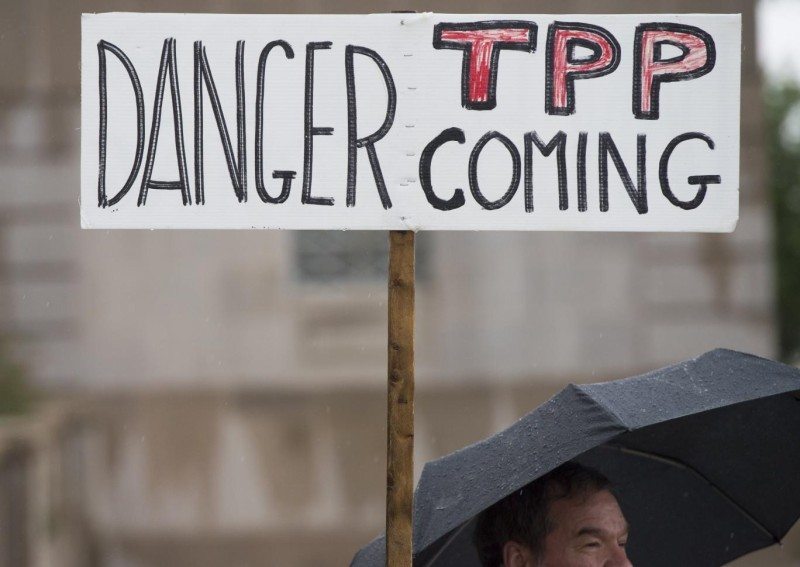Newly-Signed TTP Could be “Biggest Global Threat to the Internet”
Ashley Allen / 9 years ago

After five years of negotiations – and of opponents protesting against it – the Trans-Pacific Partnership has been signed. The TPP agreement covers around 40% of the world’s economy and is designed to facilitate the free market – across Pacific countries Brunei, Chile, Singapore, New Zealand, Australia, Canada, Japan, Malaysia, Mexico, Peru, the United States, and Vietnam via a multinational business agreement. A similar deal, the Transatlantic Trade and Investment Partnership or TTIP, is currently being negotiated between Europe and the US, with the plan met by similar opposition from the public. Both TPP and TTIP have been called a threat to consumers, public services, and, especially, the internet.
So, why is TPP a bad thing? Why has the Electronic Freedom Foundation-branded TPP “one of the worst global threats to the internet”? One clause of the agreement in particular has become a serious point of contention. It criminalises the exposure of corporate misconduct “through a computer system”, meaning that whistleblowers or journalists that reveal information online about a business that has behaved badly – whether in the public interest or not – could be prosecuted. The wording of the agreement is so vague that it could even extend to consumers criticising companies on a public forum.
Another point of concern is a modification to rules governing takedown notices. Under TPP, one single complaint is enough to force online content providers, like Facebook, Twitter, or YouTube, to take down the offending content, opening the internet up to a new form of censorship.
In a post entitled “What Is TPP? Biggest Global Threat to the Internet Since ACTA“, the EFF’s Katitza Rodriguez and Maria Sutton wrote:
“The TPP is likely to export some of the worst features of U.S. copyright law to Pacific Rim countries: a broad ban on breaking digital locks on devices and creative works (even for legal purposes), a minimum copyright term of the lifetime of the creator plus seventy years (the current international norm is the lifetime plus fifty years), privatization of enforcement for copyright infringement, ruinous statutory damages with no proof of actual harm, and government seizures of computers and equipment involved in alleged infringement.”
Pressure group Expose The TTP added, “Under this TPP proposal, Internet Service Providers could be required to “police” user activity (i.e. police YOU), take down internet content, and cut people off from internet access for common user-generated content.”
Thank you The Independent for providing us with this information.



















